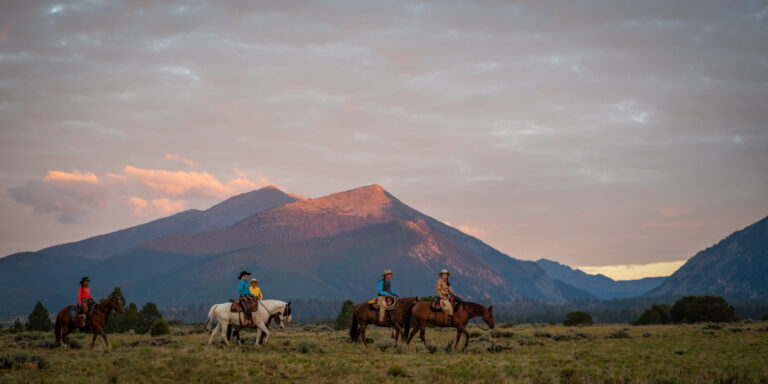If you’re a camping enthusiast as well as a horse lover, overnight horse camping could be the perfect combination of your interests. If you’re interested in events such as endurance riding or competitive trail riding, horse camping is often a part of the experience.
No matter why you’re hitching up and camping out, the key to having a good time is making sure that both you and your horse are prepared.
Here, seasoned horse campers share their insights on how to have a safe and fun trip with your horse.
Do Your Homework: To find a campsite, talk with your horse friends, ask around at local horse clubs and tack stores, read magazines, and search the Internet, recommends Bonnie Davis, consulting editor for The Trail Rider.
But before you hit the road, it’s important to know everything you can about your campsite.
Find out what types of horse containment the site offers; if there’s a water source, or if you have to bring your own; what types of parking are available; if there are any feed restrictions; and if any specific areas don’t allow horses.
?I?d want to know as much about the site as I could,? says Juli S. Thorson, H&R?s editor-at-large. ?Some places provide corrals and others don’t. Also, some national forests have restrictions on hay or bedding from outside areas. In that case, you might use pellets or certified weed-free hay.?
Horse Prep: ?The most important thing your horse needs for camping is patience,? says Davis. ?Many places don’t have corrals or fenced areas. So you highline, picket, or bring your own panels. If your horse has patience and understanding to use those facilities, you shouldn?t have a problem.?
If your horse isn?t used to being tied or confined, work with him in a familiar setting to prepare him.
?If you’re using a portable electric corral, set that up at home and put your horse in it so he understands that the electricity is a barrier,? Thorson stresses. ?Same thing with the highline. Practice it at home before you go.?
What to Take: ?Make sure you have a current map, as a GPS can fail or not function without a signal,? suggests Davis.
?I always bring a horse first-aid kit and a good instruction manual,? advises Thorson. ?I tend not to rely on phone apps?the battery might die or there might not be any Internet or signal. You have to be self-sufficient in terms of taking care of your horse. Anything can happen, and you probably won?t be right down the street from a vet.
?For myself, I make sure I have a first-aid kit, appropriate clothing, food, tent/ shelter, and bedding,? Thorson says.
?Always take at least 10 gallons of water with you, even if there’s water available at the site,? says Davis. ?It could be turned off or unavailable when you arrive.
?I have a camp list for horses and a people camp list that I use,? she adds. (Find both lists here.)
Get Started: ?Join a group or club like Back Country Horsemen of America (backcountryhorse.com) that does organized horse camping,? Thorson recommends. ?They trade information about places to camp, help each other out, and teach newbies the ropes.?
?Go where your experience takes you,? says Davis. ?If you?ve never been before, don’t go out in the wilderness. Go someplace with first-class accommodations that offers corrals for your horses, cooks meals for you, and gives you a place to stay. Build on your experiences and, each time, go a little bit further.?







